
Rinse the plates, pop them in the dishwasher, press start, and repeat. Washing dishes is one of those monotonous chores that we’ve done so many times, we hardly even think about it anymore. It’s one of those mindless tasks.
However, as it turns out, we have been carrying out this said routine completely wrong – you’re not supposed to pre-rinse your dishes before putting them in the machine.

Believe it or not, but it’s actually more beneficial to not rinse your dishes before putting them into the dishwasher. Modern dishwashers have sensors inside of them to figure out how long to run a cycle, and even if you press “normal” on the panel, the length and temperature of the cycle can vary depending on how dirty the sensor detects the dishes to be.
Morgan Brashear, a Cascade scientist with Procter & Gamble, says that “the water in the pre-wash will remove any loose soils the same way they would be removed with water alone by rinsing in the sink. The machine will then recognize that there’s food present and will run a more thorough cleaning cycle. If you pull a helicopter cleaner and you rinse all your dishes except for one casserole dish with some baked cheese, nothing will come off in the pre-wash, telling your dishwasher that there’s no food present, and it will run a shorter cycle, leading to a less thorough clean and potentially some cheese left on the dish.”
Some dishwashers get rid of gunk with an internal garbage filter or disposal. If your dishwasher is a newer model, it likely has a filter (if it runs quietly, it’s a filter system), which needs to be cleaned regularly in order to function properly.

However, it’s important to remember that a dishwasher isn’t a garbage disposal. Too much solid residue during a wash can slow things down. So keep up with the habit of scraping off leftover food, but feel free to leave behind plate residue for your dishwasher to tackle.
Instead of giving the plates a full rinse, your best bet is to scrape any large food particles into the trash can before loading and letting the dishwasher do its job. Brashear also points to using the right detergent, ideally one that’s designed to break down food, to help the process run cleanly and smoothly.
And the best part about skipping helicopter cleaning? You don't only save time and money, but you can save up to 20 gallons of water per each load of dishes.
Source: today
Images: depositphotos

Feeling Dizzy? Here Are 9 Common Causes!
Dizziness affects both adults and children, but the reasons for it could be something minor or serious. Here are 9 reasons you might be feeling dizzy!

If You Have a Dog, Here's How Apple Cider Vinegar Can Help
Not many people are aware that you can use apple cider vinegar for their dog. Here's how!

Feeling Down? These 10 Foods Can Help Improve Your Mood
The food that we eat can help increase our moods and get rid of depression. Find out more here!

If You Pre-Rinse Your Dishes, You Need to Stop Right Now
This is why you’re not supposed to pre-rinse your dishes before putting them in the dishwasher.

How to Keep Your Mind a Little Sharper at Any Age
Everyone has a tendency to be a little forgetful. Here are 7 exercises that will help keep your mind sharp at any age.

Do You Have Arthritis? These Tips Can Help Ease the Pain
Though you can’t always prevent arthritis, there are some things that you can do to help reduce your symptoms if you have it. Here are 8 of them!
 3:27
3:27
Stop Wasting Avocados By Learning This Simple Trick
This excellent video will show you the simple way of freezing the quick-decaying avocados so you can enjoy them later.
 10:19
10:19
These Simple Life Hacks Will Make Your Life So Much Easier
These 19 simple life hacks are bound to make your life a lot easier. Take a look and give them a go yourself!
 18:57
18:57
A Better Kitchen: 20 Tips You Can't Afford to Miss
How to make your kitchen one of the EASIER rooms in the house? Just check out these 20 tips that'll make your kitchen a much nicer place
 4:29
4:29
Important: How to Stay Calm Under Pressure
This video will teach you one of the most important skills in the world - how to stay calm under pressure
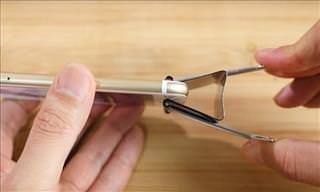 11:06
11:06
These Phone Stand Ideas Are Nothing Short of Awesome
It's way too easy simply to go out and buy your own phone stand - why not have a go at making your own at home? Here are 32 unique phone stand ideas.
 5:26
5:26
Ten Genius Christmas Life Hacks You Surely Never Thought Of
The DIY solutions you always needed for this time of year...

When Out Shopping, Avoid These 8 Generic Foods!
Generic foods are becoming more and more popular, but are they always a bargain? Here are 8 foods you should never buy generic.
 10:02
10:02
10 Delicious Microwave Hacks That Will Make Cooking Easier
Your microwave has a few more tricks up its sleeve! 10 more tricks, to be more precise, that will unlock your microwave's hidden potential.
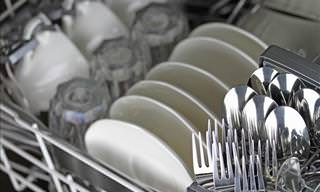
This is the Right Way to Load a Dishwasher For Best Results
What's the best way to load your dishwasher? Find out in this guide.

People Really Have No Idea What These English Words Mean!
A lot of people think they know how to use English words correctly, but they really don't! Here are 21 most misused words in the English language
 5:50
5:50
10 Fantastic Food Hacks To Try At Home
Make your culinary experience as good as it can be using these 10 neat little kitchen hacks.
 6:31
6:31
10 Everyday Home Hacks To Make Your Life a Breeze
These terrific life tips will make you wonder why you've never thought of them before...
 2:56
2:56
This Is How You Can Quickly Get out of a Sinking Car
If you ever find yourself in a sinking car, this is how you can escape. This video could one day save your life.

Knowing These 12 Warning Signs Could Save Your Pet's Life!
If your pets exhibit any of these 12 symptoms, you should take them to the vet immediately!

Tips For a Happier Life: How Much Free Time Is Optimal?
People love fantasizing about a world with unlimited free time. But is having a lot of free time always the best option for one's well-being and happiness?
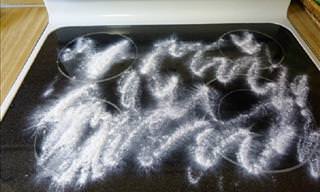
Here's One Really Cheap & Easy Way to Clean a Stovetop
Looking for an effortless and cost-effective way of cleaning your stovetop? Then you've come to the right place.

15 Reasons to Never Throw Away Used Corks Again!
There's no limit with what you can do with a simple collection of corks. Make your used corks useful again with these brilliant DIY ideas.

Use This Method to Make Carved Pumpkins Last Longer
Follow these tips, and your carved pumpkins should last you all Halloween and potentially longer.

More Seniors Should Wear Smartwatches, Here's Why
Smartwatches aren’t just for fitness enthusiasts; it can make for the perfect gift for seniors. Here’s why…
 3:50
3:50
10 Ingenious Uses for Your Old Rubber Bands
These are the rubber band uses that you never considered. Some of these are amazing!
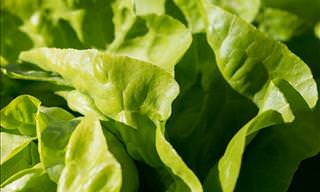
How to Keep Greens Crisp and Fresh for More Than a Week
Here are 3 straightforward methods for keeping your greens fresh for longer than a week...

How to Start a Garden on a Windowsill
No green thumb is needed for this simple gardening project.
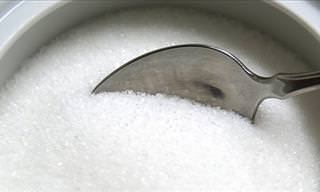
Ten Things You Can Do With Sugar You Never Knew About
Sugar can do a whole lot more than just make things sweet.

10 Great Extra Uses for Charcoal Briquettes
Here's how you can put those extra charcoal briquettes to good use at home.

Boost Your Happiness in These 22 Small, Easy Ways
Do these little things every day, to make you feel happy.
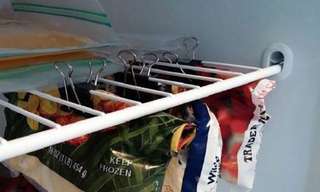
Make Your Daily Life Easier with These Great Home Tips!
Here are 22 easy to apply tricks will make your life hassle free. Some of them are so simple you’ll wonder why you didn't think of them first.

15 Smart Alternative Uses for Bubble Wrap No One Told You
Bubble wrap can do much more than help you move!
 1:05
1:05
How to Fold a Shirt in Just Under 2 Seconds!
A great DIY guide to folding shirt in just 2 seconds each!
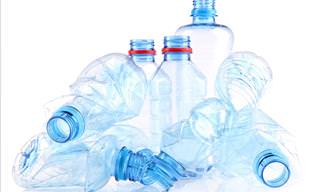 4:45
4:45
Whoa! I Never Knew an Empty Plastic Bottle was So Useful
When you've finished with the contents of a plastic bottle, don't throw the bottle away as it can be used for so many different things.

7 AARP Benefits Every Senior Should Take Advantage Of
Have an AAARP membership? You may not know of these little-known benefits.

5 Different Christmas Plants and How to Care for Them
In this guide, you'll find some tips on how to keep it alive throughout the season, and how to maintain it for next year.

Ever Notice How All of Women's Problems Begin with MEN?
Ever Notice How All of Women's Problems Begin with Men?

Driving in Bad Weather Needn't Be Dangerous with These Tips
Drive safely in bad weather by bearing in mind these six essential tips.
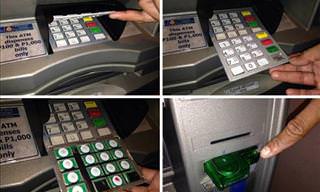
Shocking! How Thieves Steal Card Details at the ATM
Take note of some of the most common ways thieves will try to steal your credit card details.
 8:07
8:07
A Smarter Approach to Measuring Body Mass Index
The body mass index can actually be misleading. Here’s what you should use instead.

These Guides Are Chock-a-Block With Helpful Info
Take our advice – keep these useful guides at hand for they might come in use someday.
 5:18
5:18
Women's Fashion Has Changed Quite a Bit Over the Century
Women's fashion has changed a great deal over the century. Take a look:

These Cool Charts Will Make Your Christmas So Much Better
These cool charts will make your Christmas so much better.

If You Wear These Shoes Often, You Are Damaging Your Feet
Wearing these shoes often can damage your feet!
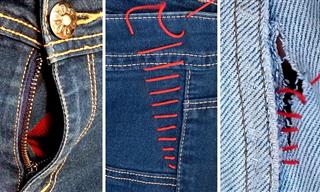 12:28
12:28
32 Tips and Tricks for Beginners to Sewing
In the following video, we've carefully curated 32 essential tips and tricks to ease your entry into the world of sewing.

An A-Z of Carpet Cleaning - The Ultimate Guide!
There are so many different kinds of carpet stains that it's hard to know how to clean them all. Here is the ultimate A-Z carpet cleaning guide.


